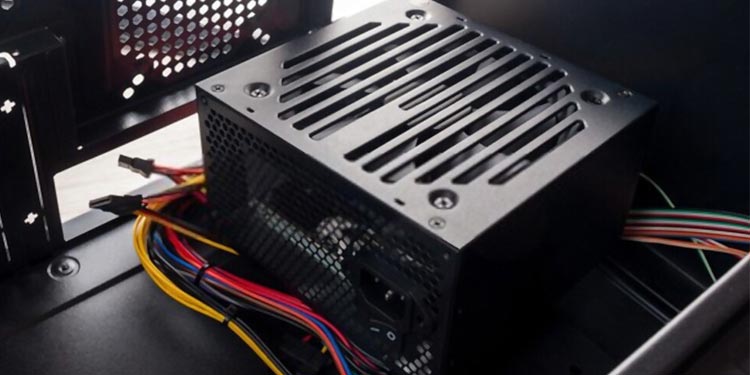Buzzing Power Supply

A buzzing power supply can be a concerning and frustrating issue for anyone who relies on their computer or other electronic devices for work, entertainment, or daily life. The buzzing noise, often accompanied by a vibrating sensation, can indicate a problem with the power supply unit (PSU) that, if left unaddressed, might lead to more severe consequences such as system instability, data loss, or even a complete failure of the PSU or other components.
Understanding the Power Supply Unit (PSU)
Before diving into the potential causes and solutions for a buzzing power supply, it’s essential to understand the role of the PSU in a computer system. The PSU is responsible for converting AC (alternating current) from the mains power to DC (direct current) that the computer’s components can use. It’s a critical component, providing power to the CPU, motherboard, RAM, storage drives, and peripherals. A high-quality PSU is designed to efficiently regulate voltage, handle power spikes, and operate reliably over its lifespan.
Potential Causes of a Buzzing Power Supply
Several factors can contribute to a buzzing power supply. Identifying the cause is crucial for applying the correct solution. Here are some common reasons:
- Overload or Overheating: When a PSU is overloaded beyond its capacity or operates in a high-temperature environment, it can lead to inefficiencies and stress on its components, resulting in a buzzing noise.
- Dust Buildup: Dust accumulating inside the PSU or the computer case can cause overheating and reduce the PSU’s efficiency, leading to unusual noises.
- Capacitor Failure: Capacitors within the PSU can degrade over time, especially if the PSU is of lower quality or has been exposed to high temperatures. Failed capacitors can cause instability and noise.
- Fan Issues: Many modern PSUs come equipped with cooling fans. If the fan is failing or has failed, it can lead to increased temperatures and potentially cause the PSU to malfunction, resulting in a buzzing sound.
- Loose Connections: Loose connections within the PSU or between the PSU and other components can cause power fluctuations and noise.
- Low Quality or Aging PSU: A low-quality PSU or one that has reached the end of its lifespan may start to buzzing due to worn-out components.
Troubleshooting and Solutions
Addressing a buzzing power supply promptly can prevent further damage and ensure the longevity of your system. Here are steps to troubleshoot and potentially solve the issue:
- Check the PSU’s Load: Ensure that the total power draw of your system’s components does not exceed the PSU’s wattage capacity. You can use online PSU wattage calculators to estimate your system’s power requirements.
- Clean Dust: Regularly clean dust from the PSU and the computer case to improve airflow and reduce the risk of overheating. Use compressed air for this purpose, taking care not to push debris further into the components.
- Inspect for Physical Damage: Visually inspect the PSU and its cables for any signs of physical damage. If you find any, it may be necessary to replace the PSU.
- Replace Failed Components: If you’ve identified a specific failed component, such as a capacitor, and you’re comfortable with soldering and electronics, you might consider replacing it. However, this is a challenging task and not recommended for most users.
- Consider Upgrading: If your PSU is old, of poor quality, or no longer sufficient for your system’s needs, it might be time to consider upgrading to a higher wattage, more efficient PSU.
Preventive Measures
Preventing issues with your power supply can save you from the hassle of troubleshooting and potentially expensive repairs. Here are some preventive measures:
- Choose a High-Quality PSU: When building or upgrading your computer, invest in a PSU from a reputable manufacturer known for producing high-quality, reliable products.
- Monitor Your System’s Power Draw: Ensure your PSU can handle the power requirements of your system under full load.
- Maintain Good Airflow: Keep your computer case well-ventilated to prevent overheating.
- Regularly Clean Your Computer: Dust buildup can lead to overheating and efficiency issues.
Conclusion
A buzzing power supply is a signal that something needs attention to prevent potential damage to your computer system. By understanding the causes and taking appropriate action, you can resolve the issue and ensure the longevity and reliability of your computer. Regular maintenance, choosing high-quality components, and monitoring your system’s health can go a long way in preventing such issues from arising in the future.
What are the common signs of a failing power supply?
+Common signs include a buzzing or whining noise, overheating, system crashes or shutdowns, burning smells, and visible signs of physical damage or wear.
How often should I clean my computer to prevent dust buildup?
+It’s recommended to clean your computer every 3 to 6 months, depending on your environment. If you live in a dusty area or have pets, you may need to clean it more frequently.
Can a power supply be repaired, or is it better to replace it?
+While some components of a power supply can be repaired, such as replacing failed capacitors, it’s often more cost-effective and safer to replace the entire PSU, especially if it’s old or of poor quality.

